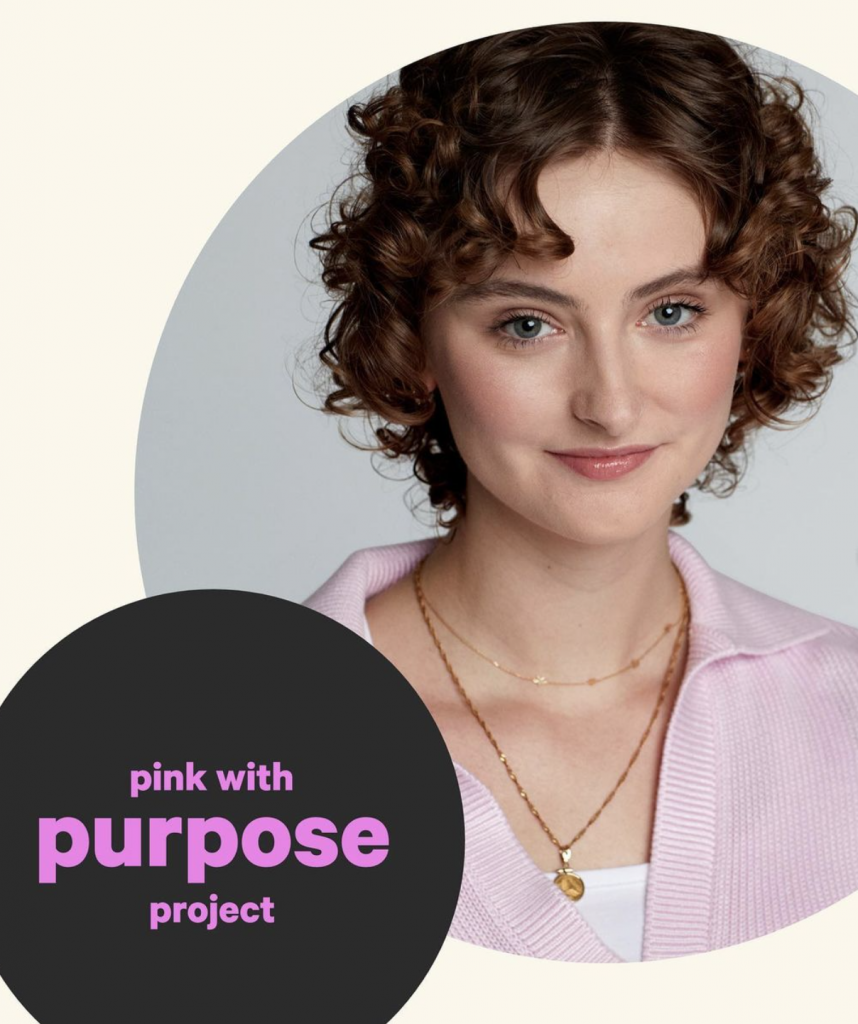A Delayed Diagnosis
- Molly Smith, at 20 years old, began feeling numbness in her arms and legs. Concerned, she went to the doctor, but they were quick to dismiss what she was experiencing as dehydration or anxiety.
- Pushing for answers, she finally had a pelvic ultrasound, which discovered an ovarian cyst. After more waiting and brush-offs that it was probably benign, or non-cancerous (as it is in most young women), they eventually discovered that Smith did in fact have ovarian cancer.
- Ovarian cancer is sometimes referred to as “the cancer that whispers,” because the symptoms, though not completely silent, can be very subtle. When detected early, ovarian cancer can have a better than 90% cure rate. But symptoms of the disease – like cramping, abdominal bloating or lower back pain are easy to ignore – meaning only 20% of cases are caught early.
- While a delayed diagnosis, or misdiagnosis, can be extremely dangerous, it is important to do whatever it takes on your end to ensure that you will not be another statistic. Do your part by seeking multiple opinions until you get the right diagnosis – and don’t be afraid to get a bit pushy to demand answers.
As the symptoms progressed, affecting her ability to dance or even walk, she kept pushing for answers – and eventually found out she had ovarian cancer.
Read MorePushing for Answers
“I knew in my gut there had to be an explanation and I was going to do anything in my power to figure it out,” Smith recalled of her frustration on Saturday to Newsweek, unsure at the time if she would ever get her feeling back. “It felt like the end of the world.”She finally had an ultrasound scan which revealed an ovarian cyst, then soon after found out of her ovarian cancer diagnosis. She has been a woman on a mission ever since.

“I understand that most doctors wouldn’t make the connection between neuropathy and ovarian cancer, but the dismissal of my concerns is unacceptable,” voiced Smith, who was chosen by Victoria’s Secret Pink as a top 10 “changemaker” for its PINK with Purpose Project in May.
After all Smith went through to make her voice heard at the beginning of her health journey, she said that even when her medical team found her cyst, they said it was “probably benign,” or non-cancerous, and waited a few more months to see if it would go away.

While that might be standard protocol for a younger person with less risk, it is also important to handle a patient’s concerns in a proper manner, especially as more and more younger people are unfortunately getting diagnosed with cancer.
A woman knows her body more than anyone else.
In Remission
Thankfully, Smith is now in remission after having surgery and completing three rounds of chemotherapy treatment.
Now a dedicated activist, the Montverde Academy alum (a private prep school in Montverde, Fla.) has started her own nonprofit organization Mission Mariposa, which educates young people about cancer and encourages them to advocate for themselves. Some of her videos have even gone viral.

“I wanted to point out the ways doctors might dismiss concerns without you realizing. We tend to believe everything doctors say because they’re experts, but they make errors,” Smith said, urging that “the best person advocating for your health is you.”
Added Smith: “We like to say we help cancer fighters find their wings. To me, this means building confidence, taking hold of your story and using that experience to help others.”
‘The Cancer That Whispers’ – Symptoms of Ovarian Cancer
Ovarian cancer is sometimes referred to as “the cancer that whispers,” because the symptoms, though not completely silent, can be very subtle.
When detected early, ovarian cancer can have a better than 90% cure rate. But symptoms of the disease – like cramping, abdominal bloating or lower back pain are easy to ignore – meaning only 20% of cases are caught early.
“We don’t have a good screening method, but if you have symptoms, it’s very important that you go to your physician because there might be an opportunity that we can detect it when it’s still early stage,” Dr. Jose Alejandro Rauh-Hain, a gynecologic oncologist at MD Anderson Cancer Center, told SurvivorNet in a prior interview.
Learning more about ovarian cancer
Ovarian cancer symptoms can include bloating, abdominal pain, and changes in bowel habits.
Some patients mention a feeling of fullness, which reduces their appetite. “It’s very important the patients are not afraid to ask questions to their physicians,” Dr. Rauh-Hain says, “because the sooner we can diagnose the cancer, the better the prognosis.”
No Real Screening Tests for Ovarian Cancer
Unlike some other types of cancer, such as breast cancer and colon cancer, there aren’t any routine screening tests for ovarian cancer. At the present time, there are no simple and reliable methods available that can screen for ovarian cancer in women who do not have any signs or symptoms.
In fact, if a woman doesn’t have any symptoms and is not at high risk for a hereditary ovarian cancer syndrome, current recommendations say that she should not get screened. This is an across the board consensus from major medical groups and public health organizations such as the U.S. Preventive Services Task Force, the American College of Obstetricians and Gynecologists, and the American Cancer Society.

Screening of women who are at an average risk for the disease may do more harm than good, as it can lead to more testing or even unnecessary surgery. However, it is recommended that women who are at a high risk for ovarian cancer due to an inherited genetic syndrome consider getting screened.
There are tests that doctors use when they suspect a patient might have ovarian cancer, and for those who have a genetic predisposition to this cancer. These include the transvaginal ultrasound, which is an ultrasound of the female genital organs that is done internally, and a blood test called CA-125, which tests for a marker that is elevated in women with ovarian cancer. However, these are not true screening tests for ovarian cancer.
“These are tests we may use in a patient in whom we have a high suspicion of cancer, or in patients who have a genetic predisposition to the disease,” Dr. Kimberly Resnick, gynecologic oncologist at MetroHealth in Cleveland, Ohio, previously explained to SurvivorNet. “But these are not screening tests to use in everyday women who walk into the office with abdominal cramps.”
The most valuable thing to tell a patient, says Dr. Resnick, is to be an advocate for yourself and trust your body. “You know your body better than anyone does, and better than any physician will probably ever know,” she said. “So trust your body and listen to your symptoms.”
Ovarian Cancer in Younger Women
Ovarian cancer survivor Natalie Cox wanted to educate young people about the possibility of getting cancer early, so she wrote the book Nattitude: Fighting Cancer, Surviving, and Making the Choice to Keep Living.
When I was diagnosed in 2012 only 1% of women diagnosed with ovarian were under the age of 20,” says Coxe, “There were no good books for young people.”
Diagnosed with ovarian cancer her first year in college: Alexia Arabit’s story
She tells young people facing a diagnosis:
- Find your positive posse: “They’re the friends; not the ones who do a favor, then post it on Facebook for ‘cancer credit.’ “
- Don’t believe everything you read on the internet: “Stick to the information your gynecological oncologist gives you.”
- Don’t forget to live: “At my last chemo, my nurse, Lynne, whispered that in my ear. I’d gotten good at being a cancer patient, but survivorship can be harder than treatment — I had no idea what to do next.”
How to Advocate for Better Healthcare Outcomes
While a delayed diagnosis, or misdiagnosis, can be extremely dangerous, it is important to do whatever it takes on your end to ensure that you will not be another statistic. Doctors are busy and can get distracted, with countless patients and life duties, along with stress at home just like the rest of us.
Do your part by seeking multiple opinions until you get the right diagnosis – and don’t be afraid to get a bit pushy to demand answers.
“If I had any advice for you following a cancer diagnosis, it would be, first, to seek out multiple opinions as to the best care,” National Cancer Institute Chief of Surgery Steve Rosenberg previously told SurvivorNet. “Because finding a doctor who is up to the latest of information is important.”
Cancer research legend urges patients to get multiple opinions
“It’s always important to get other opinions so that you can make the best decisions for yourself in consultation with your care providers,” he added.
Advocating for your health also means seeking out answers about symptoms. With ovarian cancer in particular, this may mean getting symptoms that you may believe are linked to your menstrual cycle checked out as well.
Questions for Your Doctor
If you have been diagnosed with ovarian cancer and are interested in learning what treatments are available for you, ask your doctor a few questions.
- What stage is my ovarian cancer in and what type do I have?
- Will genetic testing help determine what treatment may be best for me?
- Are there other tests, like for the folate receptor alpha protein, that I can take?
- What are my treatment options based on my results?
- What side effects should I expect from the available treatments?
- If my ovarian cancer is platinum-resistant, what treatment options can I explore?
- Will insurance cover new cancer drugs?
Contributing: SurvivorNet Staff
Learn more about SurvivorNet's rigorous medical review process.

